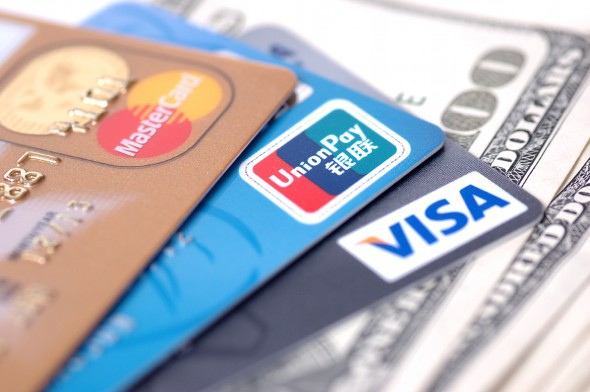If you’re buying your first home or refinancing your mortgage, you’ll need to make sure you’ve got enough money on hand to seal the deal. Closing costs typically make up between 2% and 5% of the purchase price and they have to be paid before the loan can be finalized. When you don’t have the cash, you could borrow from family and friends or take an advance from your credit card. If you’re considering a cash advance, it’s important to be aware of all the potential downsides of that choice.
Check out our closing costs calculator.
Cost Can Outweigh Convenience
While you can pull money directly from your line of credit, the credit card company’s likely going to charge you a premium for doing so. Cash advance fees can range from 3% to 5% of the advance amount and the fee is tacked onto your balance. If you’re buying a $200,000 home with $6,000 in closing costs, you could pay up to $300 for the cash advance fee.
The other problem with taking a cash advance is that the interest rate for these transactions is calculated differently than the one used for purchases. For instance, if your rate for standards charges is 18%, the cash advance interest rate could be more than 30%. If you can’t pay the balance off quickly, a cash advance could become even more expensive as the interest piles up.
Taking a Cash Advance Affects Your Credit Score
During the mortgage application process, the lender will be looking closely at your credit so you probably don’t want to do anything that could put your score in danger. Taking a cash advance prior to your final approval to cover your anticipated closing costs could have a negative impact on your credit standing.
Lenders consider your credit utilization ratio when assessing how much of a risk you are. This is the amount of available credit you have versus the amount of credit you’ve used. If taking a cash advance puts you close to the limit on one or more credit cards, that directly affects your ratio and therefore your score. Even if you’re already preapproved for a mortgage, it’s important to tread carefully when it comes to your credit.
You May Have to Explain the Cash Advance to a Lender
Aside from your credit, your mortgage lender will also review your bank statements for the period leading up to your loan application. Specifically, they’ll be looking for unusual withdrawals or large deposits that don’t fit with your normal banking activity.
If you receive a large sum of cash out of the blue from a credit card advance, they may ask where the money’s coming from. If you have to tell them that it came from a cash advance, that may raise some eyebrows about your ability to pay the mortgage. In the worst case scenario, the lender might decide you’re too much of a risk and deny your loan application.
Find out now: Which credit card is best for you?
How to Make a Cash Advance More Affordable
If you decide to go ahead with a cash advance, you can take some of the sting out of the interest by transferring the balance to another card with a lower rate. When you’re comparing 0% interest offers, you might want to look for a card that offers the longest promotional term to give you the most flexibility for repaying it. It’s a good idea to choose one that doesn’t charge an annual fee to keep costs as low as possible.
There is a catch involved with balance transfers, however. You’ll get hit with another fee that’s usually around 3%. But when you compare that number to the interest you’d be charged otherwise, it might be a small price to pay. It’s certainly worth looking into your options to make sure you’re making the best decision for your situation.
If you want assistance making big financial decisions like this, talking to a financial advisor might be a good idea. A matching tool like SmartAsset’s SmartAdvisor can help you find a person to work with to meet your needs. First you answer a series of questions about your situation and your goals. Then the program narrows down thousands of advisors to three fiduciaries who meet your needs. You can read their profiles to learn more about them, interview them on the phone or in person and choose who to work with in the future. This allows you to find a good fit while doing much of the hard work for you.
Photo credit: ©iStock.com/sinopics
